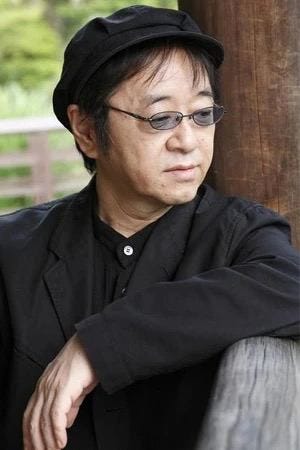Book Review: The Labyrinth House Murders by Yukito Ayatsuji
A Japanese closed-room mystery novel with metafictional elements.
Miyagaki, a veteran detective novelist, invites four young detective novelists, an editor, a critic, and a priest for a party at his home for his sixtieth birthday. His secluded house is made in the form of a labyrinth inspired by the tale of the Labyrinth of Minos in Greek mythology. The news of Miyagaki's suicide awaits the guests, and as per his will, half of his huge inheritance will go to the writer who writes the best mystery story in the next three days, staying in the Labyrinth House. As the contest progresses, the guests find themselves trapped in a real-life closed-room murder mystery with no way to escape unless they solve it.
'The Labyrinth House Murders' is the third installment of the series of mystery novels featuring Shimada Kiyoshi written by the Japanese writer Yukito Ayatsuji. The English translation of the novel, which was originally published in 1988, will be released in May 2025. The translation is done by Ho-Ling Wong. I haven't read the previous books in the series, but though a few references appear in it, one can read the book as a standalone tale. It's written as a closed-room mystery, where every character becomes a suspect in the eyes of others. I received an advanced review copy of the book from the publisher Pushkin Vertigo through NetGalley.
The plot is structured as a novel inside the novel. When the novel opens, we find someone receiving a new detective novel titled 'The Labyrinth House Murders' based on an actual event that happened a few months ago, written by a person who was inside the Labyrinth House when the incident occurred. We then go on to read the fictional novel, which forms most of the part of the actual novel. The writer successfully induces elements of metafiction by using this device and also making the main characters writers. The end effect of the blurring of fiction and reality he achieves is brilliant. There are many interesting references in it about writing, conventions of mystery novels, and creativity.
The novel gives the effect of a brilliant magic trick. Like a magician who expertly conceals some of his activities to astound his audience, the writer also hides several elements in plain sight to subvert the expectations of the reader. The clues that are strewn everywhere in the plot are camouflaged expertly. I thought I figured something out very early in the novel and was jubilant when everything was happening as I predicted by the end of it. But I forgot that what I read was the novel inside the main novel, which wasn't over yet. I never had this much enjoyment while reading a mystery in recent times.
The issue that I normally have with the closed-room mysteries is the abundance of characters that become difficult to track. This was an issue in this novel too for the first quarter length. The characterization is also very shallow and never tries to break the surface. Also, it takes some time to establish the plot in the beginning. The writer has succeeded in hiding these issues to some extent by inducing some lighthearted moments and a lot of happenings in the plot. For me, the best character is the Labyrinth House itself, which causes a claustrophobic atmosphere, thereby magnifying the effect of suspense.
'The Labyrinth House Murders' is a clever murder mystery that uses metafictional elements and brilliant sleight-of-hand techniques to tell an entertaining story set in an ominous atmosphere. The background of Greek mythology, the story-within-a-story setup, and the intricacy of its plot make it highly recommended.





